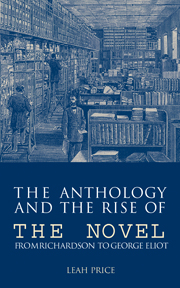Introduction
Published online by Cambridge University Press: 22 September 2009
Summary
Just before the French Revolution, the utopian writer Louis-Sebastien Mercier set out to imagine what libraries might look like in the twenty-fifth century. The only books left on the shelves, as a citizen of 2440 explained to Mercier's hypothetical time traveler, would be neither large nor new.
Those of the greatest judgment amongst us have extracted the substance of thousands of volumes, which they have included in a small duodecimo; not unlike those skilful chemists, who concentrate the virtues of many plants in a small phial, and cast aside the refuse. We have abridged what seemed of most importance; the best have been reprinted; and the whole corrected according to the true principles of morality. Our compilers are a set of men estimable and dear to the nation.
Present-day futurologists continue to predict the disappearance of the book. Yet for the digital technologies that we now picture compacting libraries, Mercier substituted verbal operations: abridgment, expurgation, compilation. The information overload that Mercier projected into our future had already begun in his lifetime. So had an arsenal of devices for containing it – the “shelf or two of BEAUTIES, ELEGANT EXTRACTS and ANAS” which Coleridge estimated sourly at “ninetenths of the reading of the reading public.”
Two centuries on, anthologists have yet to become national heroes. Mercier's utopia stands alone in a tradition where anthologies have more often inspired dystopianism, even paranoia.
- Type
- Chapter
- Information
- The Anthology and the Rise of the NovelFrom Richardson to George Eliot, pp. 1 - 12Publisher: Cambridge University PressPrint publication year: 2000

